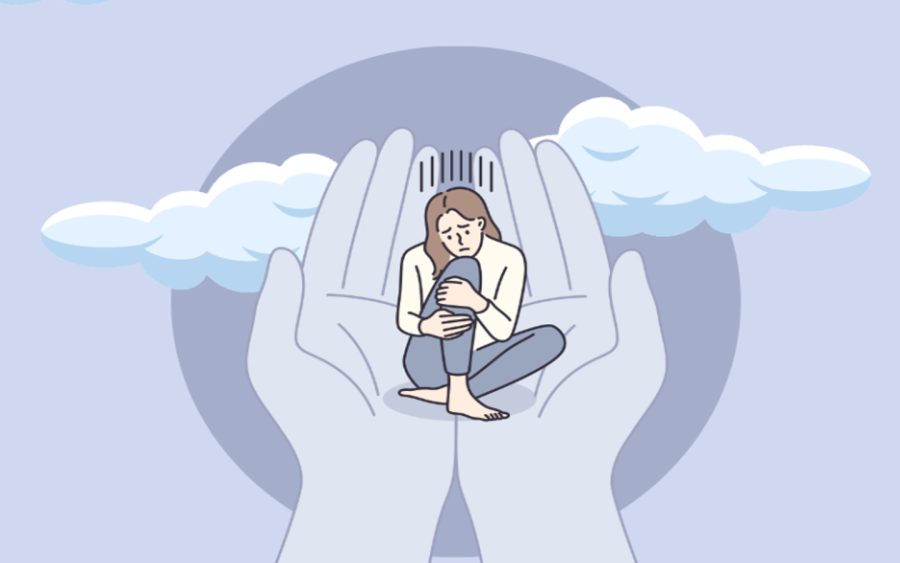The struggles of OCD
A deeper dive into the stigmatization of OCD
April 11, 2023
Imagine yourself in a world where you couldn’t go anywhere or do anything. Constant intrusive thoughts popping up in your head telling you what to do and when to do it and then acting on what the thoughts tell you. OCD is known as obsessive-compulsive disorder. The obsessive part of OCD is an unwanted intrusive thought or image that causes distress and discomfort in one’s life: the compulsion aspect is defined as the action you take in order to get rid of an unwanted thought. Having images or thoughts you can’t control as well as acting on them can be extremely time consuming.
When my symptoms first showed, initially, it wasn’t that bad.
Soon enough it gradually got worse.
The second any part of my body touched any object, I would wash that part of my body. Feeling like a never ending cycle, I washed my hands for two hours once daily, as I could only use the bathroom once a day.
Showering was even worse, five hour showers, once weekly. Hundreds of thoughts consumed my mind.
The obsessions would raise questions like; what if I get sick?
What if someone around me gets sick?
What if my dog dies?
And so many more thoughts.
This led to losing interest in all of my hobbies as well as seeing less and less of my friends and family.
As a result, I was hospitalized for almost three months. Living through all of this was nothing short of traumatic, but ultimately was able to improve my life dramatically. I reduced my hand washing from two hours to only minutes and my showering went from five hours to thirty minutes.
There is still a good deal to improve on, but overall, it is now somewhat manageable.
A common stigma people with OCD face is the idea that it is a good disorder to have or a good way to stay ‘neat’ and ‘organized.’ This is a myth perpetuated by social media, but it is far from a benefit. Not everyone who has OCD is clean or a germaphobe. In fact, it can be extremely disabling. Telling someone with OCD to ‘get over it’ is very similar to telling someone with depression to ‘look on the bright side.’ Educating others when these stereotypes arise whether it’s on social media, or respectfully confronting a person is a good way to deflate false narratives about OCD.
If you are experiencing symptoms of OCD, you can always reach out to a doctor or psychiatrist to get the help or medication you need.
Therapy types like Exposure and Response Prevention (ERP) helped me become more eager to take a step in the right direction. ERP is fundamentally a situation that is designed to expose someone to their own fears. The tasks start off small, but gradually get more difficult to challenge anxiety.
Soon enough, acting on those situations will get easier and easier, decreasing the amount of anxiety one deals with. Not one single case of OCD is the same as another.
Your feelings are valid, and if you are struggling, it is okay to reach out for help when needed.









